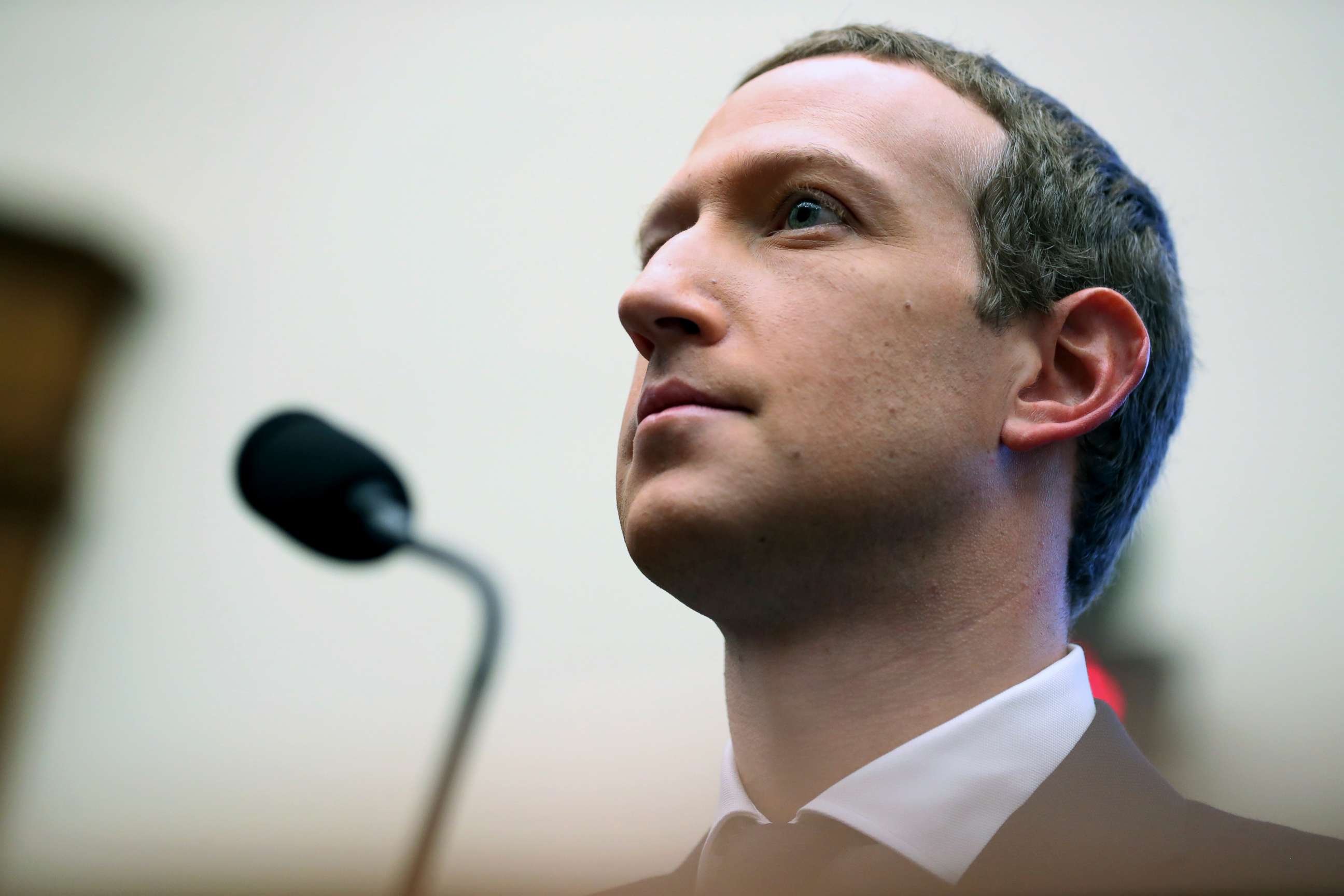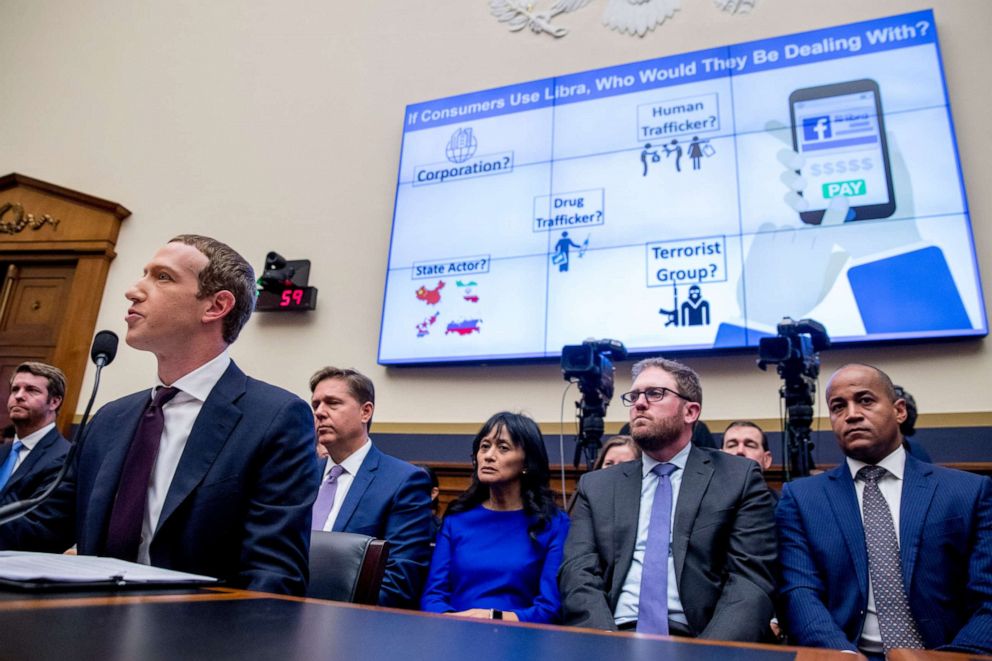Maxine Waters, AOC slam Zuckerberg during Libra testimony for ads that give 'licence to lie'
Lawmakers harshly criticized the Facebook CEO on Wednesday.
Facebook CEO Mark Zuckerberg was grilled by lawmakers on Capitol Hill on Wednesday over Libra, the company's proposed cryptocurency.
Zuckerberg faced tough scrutiny from members of the House Committee on Financial Services as he argued Facebook's new cryptocurrency was needed, calling out U.S. financial infrastructure as "outdated."
He also commented on the social network's commitment to civil rights and what it's done to promote diversity after the company's settlement with various civil rights groups related to discrimination tied to advertising and housing.

Questioning from House members veered into several controversies in which the social media platform has been embroiled -- fake political ads, facilitating the promotion of misinformation and influencing U.S. elections.
While Zuckerberg intended to discuss Facebook’s future at the hearing before the committee, Chairwoman Rep. Maxine Waters, D-Calif., began her questioning by focusing on the past, specifically on Facebook’s role in allowing Russia to interfere with the 2016 elections.
Waters said she was concerned the same thing could happen in 2020, and brought up Facebook’s controversial policy to not fact-check political ads featured on the platform.
"Russia and Iran are at it again for the upcoming elections," Waters said, addressing Zuckerberg. "Then, last week you announced a new ad policy that gives politicians a license to lie."

Facebook's policy, as posted to the website, says "advertisers can run ads about social issues, elections or politics, provided the advertiser complies with all applicable laws and the authorization process required by Facebook. Where appropriate, Facebook may restrict issue, electoral or political ads."
Lawmakers have questioned whether Zuckerberg and his team were properly vetting those advertisements.
"You won't take down lies?," asked Rep. Alexandria Ocasio-Cortez, D-N.Y. When Zuckerberg began asserting his belief that people should be able to see what politicians' post without interference from Facebook, Ocasio-Cortez interrupted him. "So you won't take them down?," she questioned again regarding ads spreading fake political information.
"Could I run ads on Facebook targeting Republicans and falsely saying they voted for the Green New Deal?, she asked the tech founder who replied that he didn't know the answer to that "off the top of my head."
Massachusetts Sen. Elizabeth Warren, a 2020 Democratic presidential candidate, has openly criticized Facebook, calling it a "disinformation-for-profit machine."
On Oct. 13, Warren continued her campaign against the company by posting false advertisements to Facebook to see if she could prove to voters that the social media platform valued profit over facts.
The ads, publicly sponsored by the Warren campaign, claimed Zuckerberg endorsed President Donald Trump for reelection, showing a photo of Trump and Zuckerberg in the Oval Office. Then the ads immediately take the claim back, ironically slamming Zuckerberg for giving politicians free reign to post false information.
At the hearing, Zuckerberg defended Facebook's ad policy, explaining that freedom of speech is an important principle of Facebook. He said his decision to not censor ads or political rhetoric could benefit "challenger candidates, local candidates and advocacy groups whose message may not otherwise be covered by the media."
Later in the hearing, Zuckerberg appeared to backtrack on his defense of his company's ad fact-checking policy, saying the policy was "not about helping the politicians."
Rep. Nydia Velazquez, D-N.Y., blatantly accused Zuckerberg of lying about the inability to integrate user data between Facebook and WhatsApp, the messaging service it acquired in 2014.
“Mr. Zuckerberg ... 18 months later ... [the] European Union fined Facebook for providing incorrect or misleading information. So let me ask you, do you understand why this record makes us concerned with Facebook entering the cryptocurrency space? Do you realize that you and Facebook have a credibility issue here?”
Zuckerberg attempted to respond and Velazquez interjected. “Have you learned that you should not lie?," she admonished.
”Congresswoman, I would disagree with the characterization," Zuckerberg replied.
The Facebook CEO also responded to questions about his company not having anyone doing specific work around civil rights issues.
“Sheryl Sandberg, our COO, is personally leading a civil rights task force that we've formalized inside the company to make sure that we implement suggestions from the audit and to make sure this receives our senior attention," he said.
Zuckerberg advised that an independent review of that work will be released publicly.
ABC News' Steff Thomas, Sasha Pezenik and Karma Allen contributed to this report.




